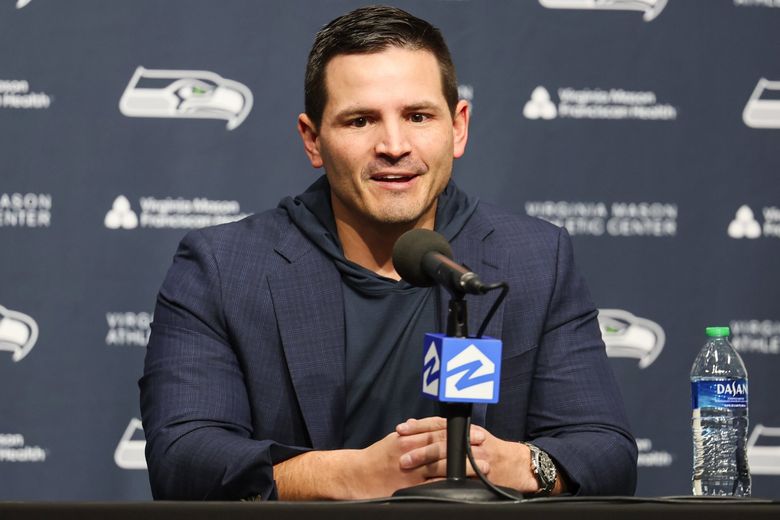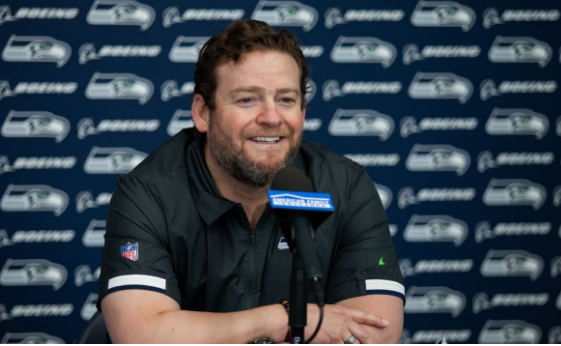This season, the NFL will implement one of the most significant rule changes in recent memory: a new kickoff system for clubs.

In fact, it’s such a significant alteration that veteran NFL referee Carl Cheffers can’t recall another rule change as important in his 25 years as an official.
“We certainly have had some fairly significant rule changes, but this is a very fundamental rule change,” Cheffers said at a press briefing on Thursday. “Obviously, we’re changing the entire setup and everything else about the kickoff as we know it, so nothing on this scale. So that’s why we’re excited to get some reps, see what it looks like, and make sure we can cover it.”
Cheffers and his officiating team are in town to assist the Seahawks at their practice at Lumen Field on Saturday afternoon. It allows officials to chat with players about what to anticipate from them in light of some of the new rules this season, as well as observe what these new kickoffs would look like in practice.
“We’ll talk about the kickoff regulation, they’ll watch the reps, and we’ll get input on what they saw. So it’s nice to have them here,” head coach Mike Macdonald remarked.
The kickoff adjustments were made in response to a large decline in the amount of returns, as well as tweaks to previous rules designed to limit injuries. The NFL has now developed a new style of play based on several kickoff formats used by leagues such as the XFL and the USFL. It has built an entirely new play with a structure unlike anything seen in the NFL previously.
“We’ll be with the team over the course of the next three days working on this kind of stuff just making sure we’re all in-sync, and we need some reps, too, right?” Cheffers commented. “With the new kickoff rule, we’re looking forward to the new dynamic kickoff, as they call it. So we’re looking forward to seeing some representatives and seeing what they’ll look like.
“The greatest issue is that none of us has seen it yet. To be honest, that is the most difficult challenge. We spotted a couple items throughout the walkthrough that were quite helpful to us. And we’ve seen footage and looked at some other leagues, but we haven’t officiated that play yet. “The teams are still deciding what they are going to do, right?”
An explanation of the new kickoff rules is provided below:
Cheffers pointed out that none of the 13 kickoffs between the Kansas City Chiefs and the San Francisco 49ers in last year’s Super Bowl were returned.
“It’s going to give this play a little boost,” Cheffers remarked. “I believe it died out due to a lack of returns and incentives for returns, but there is now an incentive to return the ball. If it rolls into the end zone, they must cover it or run with it because it is live rather than dead. There’s a lot of incentive for them to return it, and I believe it’ll really breathe new life into the kickoffs, so we’re looking forward to having an amazing play.
Another change is that officials can now seek assistance from the upstairs replay booth to reverse incorrect calls on the field. The replay booth cannot call for a flag to be thrown based on visuals seen upstairs, but if a call is made and an objective area of the penalty is not present, the booth can assist.
These will appear on plays such as blows to the head and neck if there was no impact in those areas during a collision, intentional grounding calls if a quarterback is outside the pocket or not under pressure, and late out-of-bounds hits if the player has not yet reached the sidelines when a hit occurs.
For example, last year in Detroit, Seahawks quarterback Geno Smith was called for intentional grounding after he and receiver Tyler Lockett miscommunicated on a play. Smith had expected Lockett to run deep downfield, but he broke on an out route. Smith was marked for intentional grounding since there was no receiver in the area of his throw, but he had a clean pocket and was not under pressure on the play, therefore the penalty should not have been called.
“If the quarterback is clearly not under pressure and we put down a flag for intentional grounding, then replay can come down and give us information on that,” Cheffers told reporters.
The NFL has also banned the so-called “hip-drop” tackle, which has resulted in multiple injuries during games in recent seasons. The NFL, like it did with the “horse-collar tackle,” intended to eliminate a deadly play. The tackle in question consists of three distinct characteristics that officials must assess before making a decision on the field. A player must grip their opponent, swivel their hips and leave their feet before landing on their opponent’s legs.
Officials have been told not to call the penalty until they are certain that all three conditions are met.
“We are probably going to miss some of those on the field and we want to make sure that all three of those aspects are in place before we throw a penalty,” Cheffers told reporters.
“Our players are continually adjusting. We witness numerous examples of hip-drop tackles, yet they were not banned. Making such a tackle was absolutely permissible. Now that they’re prohibited, our players must change, right? They are going to do an excellent job of adjusting. We’ll undoubtedly see a couple of them, probably early in the season. We’re going to be very cautious when we call it, making sure all three components are there before placing a flag on the field.”



